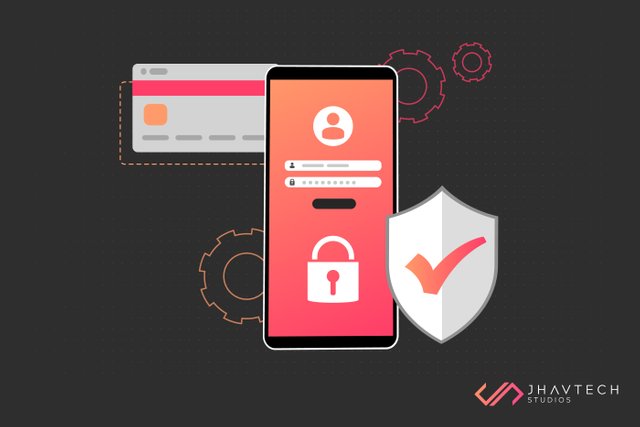Top 5 Key Qualities of a Great Mobile App for Every Business
Many startups and small companies have realized that there’s a huge opportunity to engage with existing and prospective clients on mobile apps, as people increasingly spend more time on mobile devices, particularly during the height of the COVID pandemic. This prompted business owners to develop their own apps.
A recent survey conducted by ContractIQ revealed that approximately 62% of businesses already own a mobile app or are currently developing one. Half of these businesses utilize their applications for customer engagement and support; 30% use their apps to generate revenue and 20% make use of their apps for branding purposes.
These figures represent a significant increase from the previous year, indicating how mobile app development is affecting the ways businesses operate. Generally, every entrepreneur who invests in mobile app design and development expects to launch an app that will succeed and have substantial ROI, not one that will simply get lost in the sea of competitors in the market.
However, in order to ensure that your app will perform well and has a shot at success, you must be aware of key qualities of a good mobile app and the attributes that make it market-ready. You must invest time learning what makes a great app, what makes an app unique, among other things. So, without further ado, here are 5 characteristics of an app that are important regardless of the type of business, niche or industry.
Excellent Customer Support
Not all mobile users are tech-savvy, and this is something that you need to keep in mind. There will always be a certain percentage of your target audience that will require assistance and have pre- or post-download questions. A successful mobile app’s customer service should be able to answer users’ questions immediately and address any pressing concerns. Even a single answered question can lead to a purchase or app recommendation.
Customer support is absolutely crucial for user retention and long-term business success. Your mobile app must be able to support its users 24/7. Over time, you’ll notice that you’re getting the same set of questions. In order to save time, it’s advisable to create a Frequently Asked Questions (FAQ) section, or even better, use artificial intelligence features and build a chatbot that interacts with your users.
Well-designed & User-friendly Interface
Mobile apps have a surprisingly high churn rate, which refers to the percentage of users who uninstall or stop using an app over time. To prevent this, your app must deliver a great first impression to keep users engaged. It must have a responsive and user-friendly interface. This first impression usually starts with an engaging and highly intuitive UI.
A well-designed and well-executed UI applies to the look and feel of your app, along with its functionality. Moreover, even if your app provides exceptional value, if it’s not visually appealing and intuitive, you will quickly lose users because they won’t spend time learning the interface.
Most users are expecting an excellent look so they will feel good when using your app. An intuitive and visually appealing app is typically a combination of an efficient UI and a great user experience (UX). This is why professional mobile app developers put a premium on UI and UX design. An efficient UI immediately creates an attraction for your app, while a great UX provides a lasting impact on users’ minds.
Lastly, users must have a clear understanding as to how to use your app, which buttons to click, so on and so forth. Since there are 6.92 billion smartphone users in the world today, your mobile app must be adaptable to various screen sizes. The UI must be optimized for a small touchscreen and this entails discarding all of the non-essential features so the overall design doesn’t look cluttered.
Strong Security & Data Protection
This feature is imperative for great mobile apps across different industries, although more emphasis is usually given to the financial and healthcare sectors. Security is a feature that must not be considered as a benefit, it’s an absolute necessity. Your app security must be foolproof, instead of something that you append as an afterthought.
Mobile app security means protecting users’ digital identity from all forms of fraudulent attacks, including tampering, malware, hacking, key loggers, and other types of interference or manipulation. A single security breach means sensitive information like users’ names, ages, addresses, phone numbers, and even banking information can be obtained by attackers. Aside from harm to your users, your business can incur thousands of dollars in recovery and clean-up, plus financial losses from a tarnished brand reputation.
With essential information at stake, security should be the top priority when developing an app. During the development process, take into account the following security best practices:
• Writing secure code that’s easy to maintain and update
• Encrypting all data
• Using only authorized APIs
• Being doubly careful when using 3rd party libraries
• Using high-level, multi-factor authentication
• Deploying tamper-detection technologies
• Assigning token validation with varying session expiration times
• Deploying proper session handling
• Investing in penetration testing and threat modeling for app vulnerabilities
Bear in mind that robust data protection does not end after your mobile app is built. Security is a continuous process as new threats are also constantly emerging. Routine security tests must be conducted to identify faults and flaws. Fixing these problems before they escalate ensures important information stays secure, thereby increasing customer loyalty and trust in your brand.
Integration of Offline Mode
As the names suggests, mobile apps are often used on the go and you can’t tell where and when network issues may arise. Integrating offline mode to your mobile app enhances the experience of users as they can access the app even when there’s unstable internet connection. Offline mode ensures your mobile app is responsive even when connection gets dropped or there’s no WiFi signal. It also eliminates issues like data loss due to lack of connectivity, which can be very frustrating and drives away users.
In order to build a successful mobile app that can fulfil the needs of modern-day users, most businesses are implementing an offline-first approach to enable users to migrate data off the server and have access to it at any given time. Offline mode is a competitive advantage for businesses, especially for apps like GPS navigation, banking apps, medical assistance apps or messaging apps, to name a few.
Apps with offline mode are also more budget-friendly because users don’t depend on cell service and pay for mobile data. Offline capability is likewise useful when users travel overseas since they don’t have to use data roaming. Lastly, users appreciate offline functionality because it saves battery life. Since most of them are on the go, their smartphone apps are always active to help complete a host of daily tasks.
An Effective Feedback System
It is imperative that your mobile app comes with an effective way for users to provide feedback to you. When they have issues with your app and these are not addressed quickly, they feel like you don’t care. When you integrate a feedback system, it shows users that you care about them and value what they have to say. It’s a great way to determine what your users want to see and what irks them. You should not add any new features without reviewing the feedback from your users.
As an owner of a mobile app, you can never have enough data about your users. Having a feedback system will let you learn more about the people who are using your app. For instance, you may discover that the majority of users own an iOS device. This type of information can be very useful because it allows you to focus your app development efforts in the appropriate areas.
Note, however, that that the feedback system should feature a quick and easy process for users to report bugs, provide criticism or suggest new features. You must acknowledge their feedback and you’ll realize that listening to them will let you know what they want and how you can respond to their needs. With the right feedback tools, you’ll know exactly what’s happening with your app at all times and you will be able to use the incoming information to improve user experience.
Final Thoughts
Having a mobile app can play a crucial role in the success of your business. It’s important that you allot time and resources for the design and development process. Take into account the characteristics of a good mobile app, understand what makes a great mobile app, and what makes a mobile app successful.
While there’s no secret formula in developing a successful mobile application, these are key qualities and features to consider when working on your app. It is also important to bear in mind that the end user is king and the priority should be designing an app that is user-friendly while being compelling and interactive at the same time.
.jpg)


